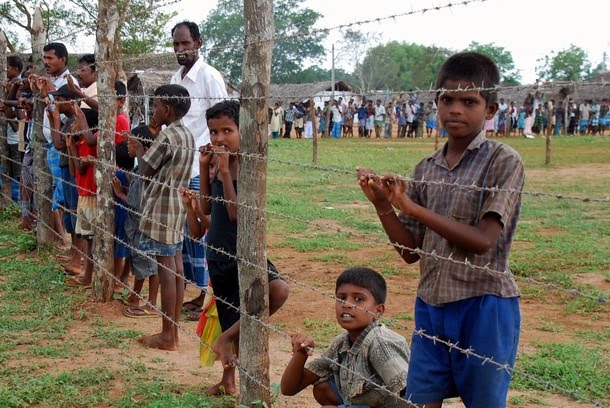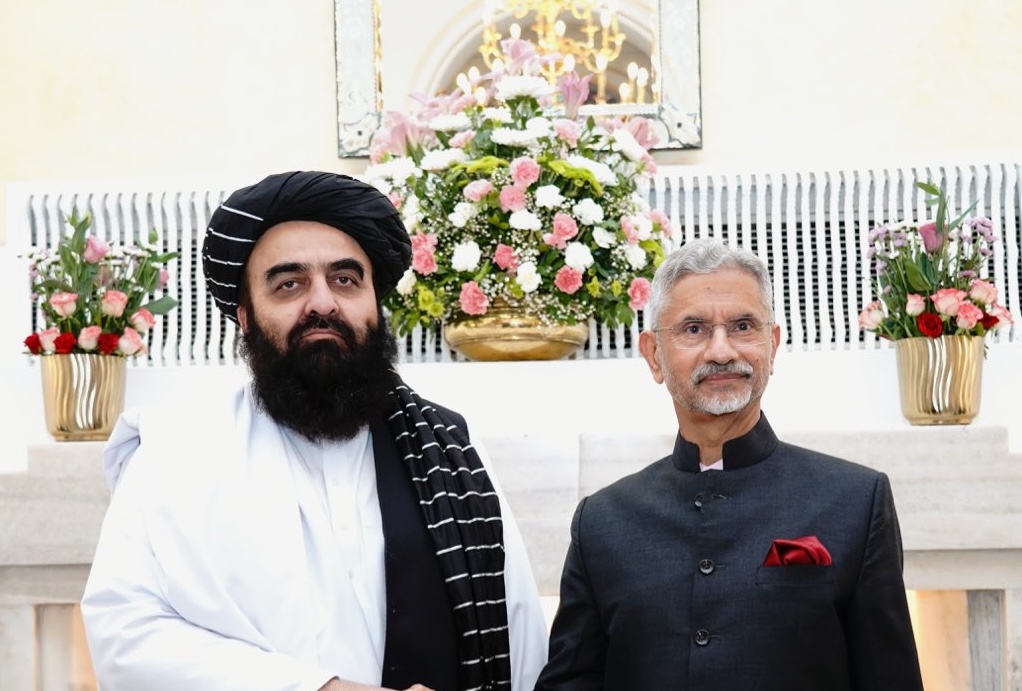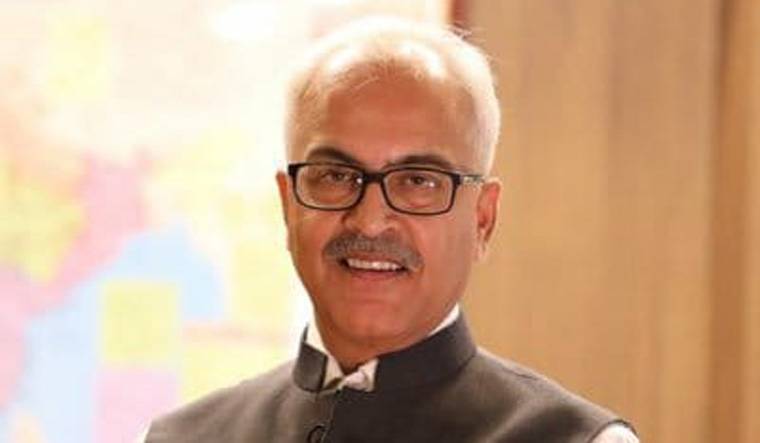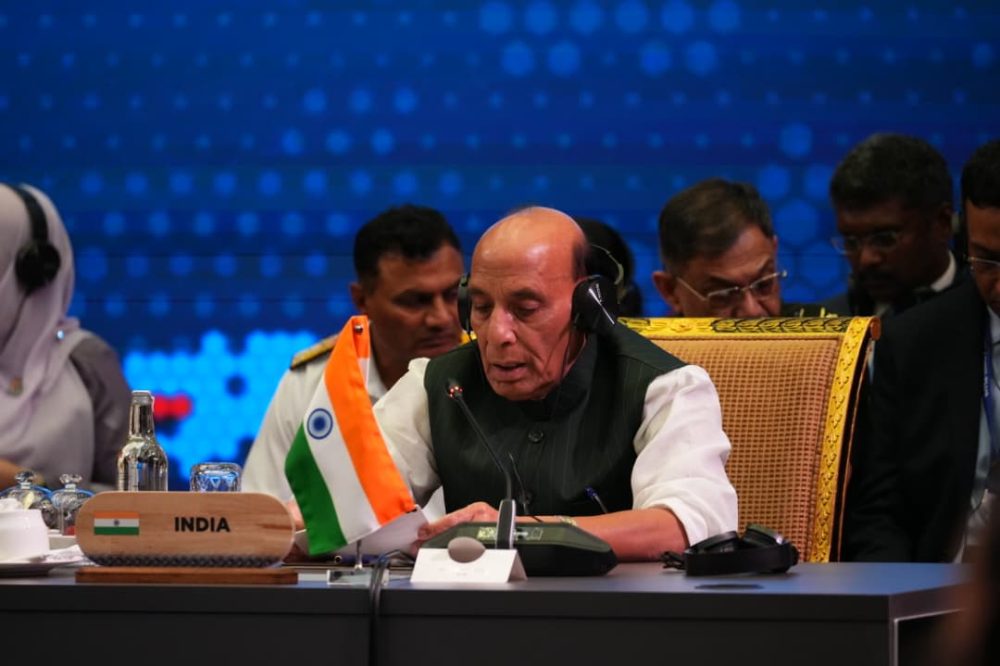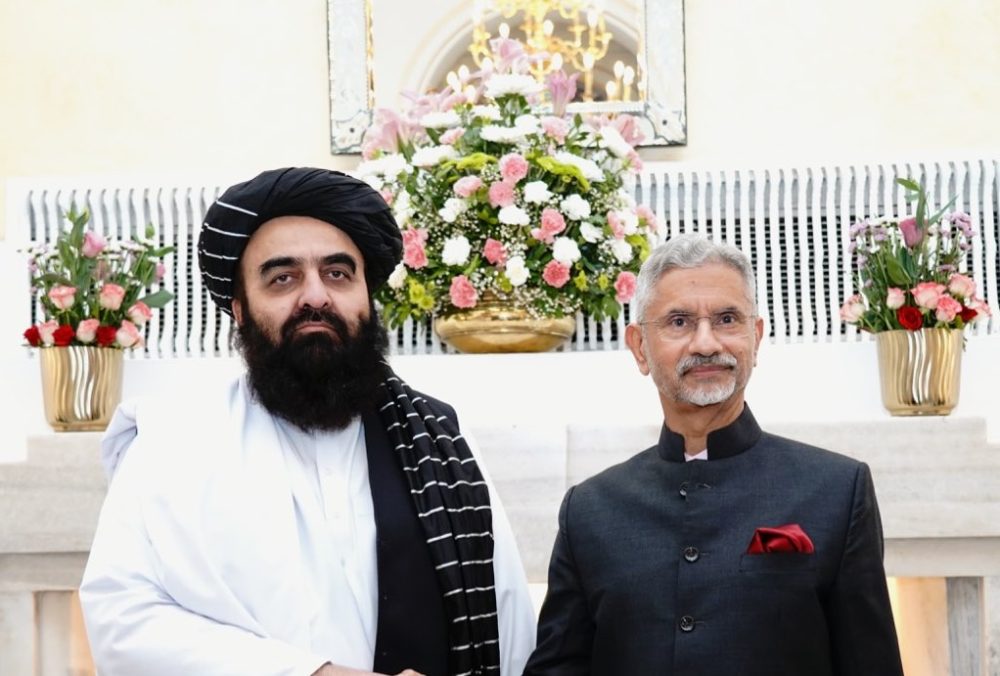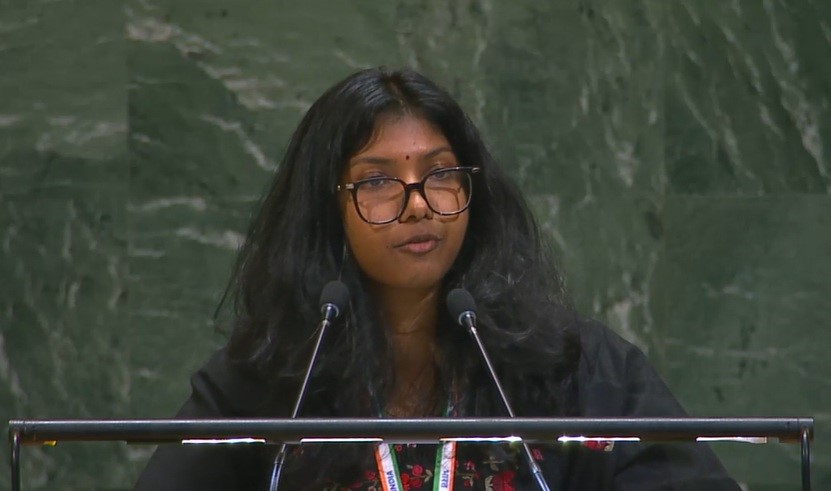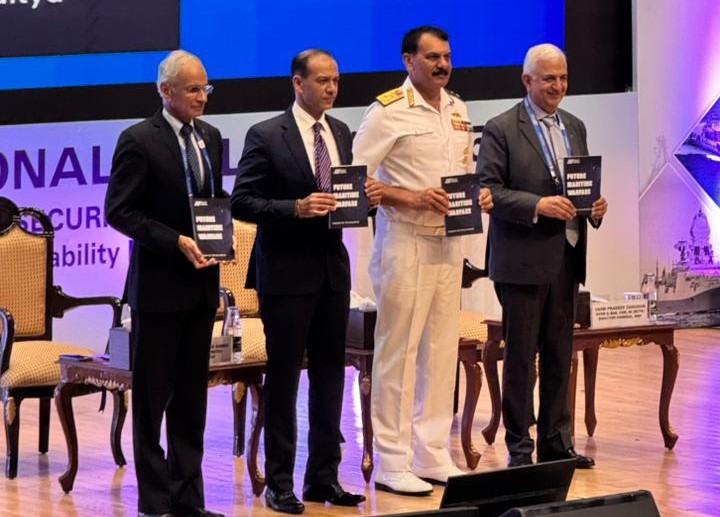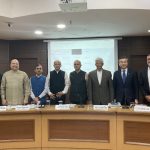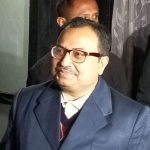Tamil Eelam will become a reality in not too far future, which aims to realise accountability of crimes against humanity, war crimes and genocide committed by Sri Lanka against Tamil minority, said Rudrakumaran Visvanathan, the ‘Prime Minister’ of the Transnational Government of Tamil Eelam (TGTE).
Here are some excerpts of the interview:
The Chinese are having a major presence in Sri Lanka and it seems that the Sri Lankan government is under a debt trap by China. Your comments?
A. As you mentioned, Sri Lanka is under a major debt trap by China. In fact, in 2019, former Vice President of the United States Mike Pence gave an important speech regarding China’s debt trap, and he cited Sri Lanka as the case study. China has the Hambantota Harbour on a 99-year lease. Since the lease agreement is sealed, we do not know the contents of the agreement. It is feared that China will use it for military purposes. There is a clause prohibiting Hambantota for military purposes, but in reality, if China decides to use it for military purposes, tiny Sri Lanka will not be able to resist. Also, China has established a strong presence through its financing of the ‘Port City’ in the capital itself and has control over the Eastern Terminal of the Colombo Port. In essence, southern Sri Lanka is rapidly becoming a Chinese colony. China has also set its sights on the Tamil areas. In this regard, we the Tamils have taken a position that any Chinese presence in the Tamil areas should only be done with the consent of the Tamils. This is consistent with Tamil sovereignty and the Tamil right to self-determination. We are also concerned about the environmental impact of any Chinese investments.
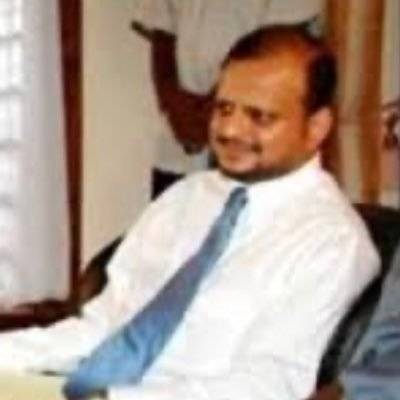
Velupillai Prabhakaran was killed on May 18, 2009 by the Sri Lankan armed forces. Has the Tamil nationalist movement lost its steam after this incident?
No. In fact, following the 2009 Mullivaikkal genocide, the movement for an independent and sovereign state of Tamil Eelam, with the motto “Never Again”, has evolved further among Eelam Tamils and Tamils across the globe. Moreover, the second, third, and fourth generation of the Eelam Tamil diaspora, with their tech-savvy political activism, has sharpened the Eelam Tamil nationalist movement. By taking up the struggle through non-violent and political means we have entered a new and even stronger phase of the freedom movement while building on the foundation of the past.
What do you expect from a country like India in the struggle for Tamil Eelam?
The geopolitical map of the Indian Ocean is being rapidly redrawn. Geostrategic, geopolitical, and geo-economic dynamics are dictating intra-regional relations in South Asia and have recently extended to the Indian Ocean. China, which is determined to replace the current world order to one based on its own rules, is expanding its strategic influence in the littoral states of the Indian Ocean. As a result, democratic virtues in these countries are in great peril.
Needless to say, the above constitutes a threat not only to peace in the Indian Ocean, but also the national interests of India. Sri Lanka, an island strategically located in the Indian Ocean, is giving a duplicitous perception that it is neutral between India and China. However, the facts and history have proven otherwise. Also, the fact remains that Sri Lanka’s relationship with China is that of a vassal state, that can be used as a springboard to harm Indian interests.
In the Freedom Charter promulgated by the TGTE in 2013, with the participation of more than 100,000 people, we have explicitly stated that we will maintain close relations with all democratic nations. In the freedom charter under the foreign policy, we also said that we are expressing solidarity with the people of India and Tamil Eelam and would like to have a special relationship with India. Our foreign policy is premised on “principled realism.”
Currently, the Sri Lankan government is engaged in structural genocide against Eelam Tamils, seeking to destroy them as a nation. India should take measures to ensure the viability of the Eelam Tamil Nation in the island of Sri Lanka both for larger reasons of principle and morality as also in its own national interests. In fact, India has a legal obligation to do so. In the Indo-Sri Lankan Accord, India recognized the North-Eastern part of Sri Lanka as a historical habitation of Tamil people. Presently, the Sri Lankan government is changing the demography through colonization and land-grab under the context of archaeological excavation. Thus, India should first ensure that Sri Lanka stop this immediately. Sri Lanka is in economic distress and India gave an unconditional USD 500 million dollars. We applaud India’s generosity. However, we think India missed an opportunity. India should have tied that aid to getting a pledge from the Sri Lankan government to not violate the Indo-Sri Lankan Accord, specifically the clause pertaining to the Tamil homeland.
Is the goal of Tamil Eelam in near sight or is it a distant dream. What are the activities you are carrying out in this regard?
What happened in Mullivaikkal was an act of genocide. The Eelam Tamils with the help of international civil society are in the process of establishing that fact. In fact, the Tamil Nadu legislature has already passed a resolution to that effect and the Canadian parliament has also unanimously passed a resolution calling for the international investigation of genocide. Once this fact is established, we are legally entitled to have an independent state, as remedial justice to ensure non-recurrence. In fact, in 1971 India helped to establish Bangladesh under the premise of remedial justice.
We are also campaigning to demand that the Tamil national political question should be resolved through a referendum. In this context, I would also like to point out that the Tamil Nadu legislature also passed a resolution for a referendum on the Tamil national question. This demand is gaining currency in international civil society too. This is not just a political question; it is a fundamental question of human rights. We have no doubt that, not too far in the future, Tamil Eelam will become a reality – and indeed the TGTE is in the process of building an independent proto-state amidst the diaspora.
What is the current status of the accountability process and the upcoming Human rights council session in March?
The current HRC mandate expires in September, thus we do not expect any dramatic changes in the March session. However, I must also tell you that the current international mechanisms, including HRC are controlled by the states and states act according to their own interests and not necessarily based on justice. Thus, we have launched a campaign called ‘Victims Driven International Justice’ utilizing the forums in the countries where the diaspora live, based on the principle of universal jurisdiction. We are also working on creating exceptions to the Foreign Sovereign Immunity Act in many countries that would enable victims to sue the Sri Lankan state itself for international crimes.
The international civil society has already created a situation whereby not a single Sri Lankan political leader or military leader and their families can openly leave Sri Lanka and go to a foreign country for even a visit. They can only leave in the dark and with the fear of being picked up and prosecuted by the judicial mechanisms in many countries.
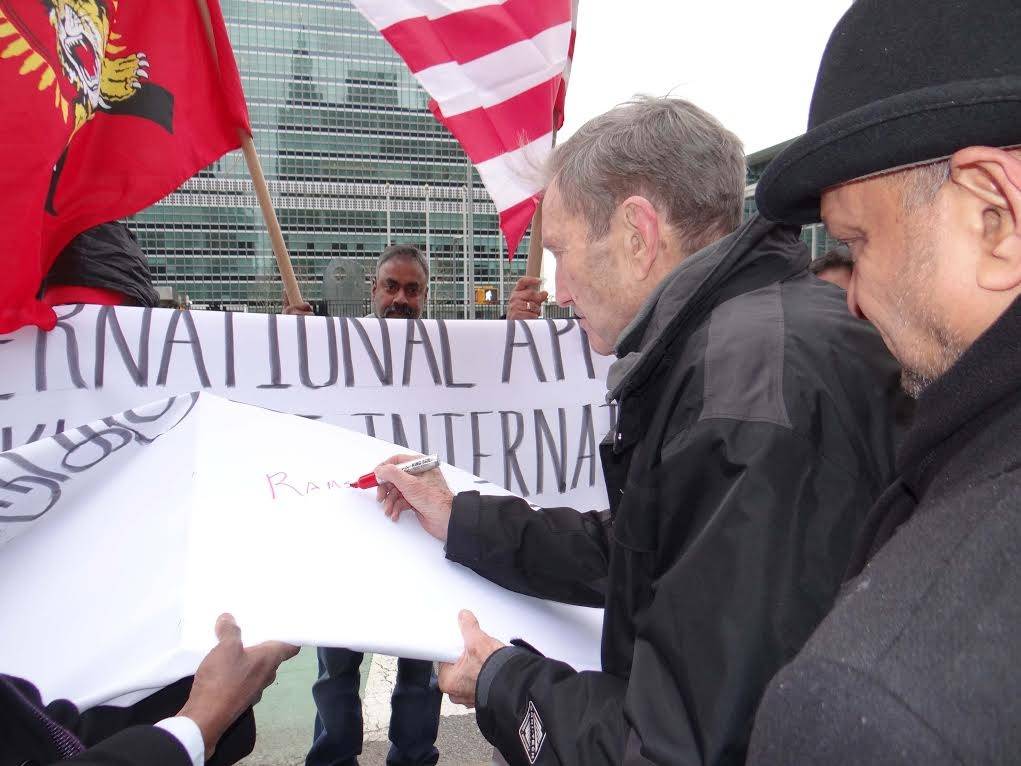
What about the proposed new constitution by the present Sri Lankan government?
The Tamils never participated in the 1972 and 1978 Constitutions. Those were imposed on the Tamils. Similarly, if this initiative for a new constitution becomes a reality it will also be imposed on Tamils because the Sri Lankan state, its institutions, and its polity are in the clutches of religious fundamentalism similar to Myanmar and Iran and will never allow any kind of power-sharing with the Tamils or with the Muslims. Racism is entrenched in Sri Lanka and permeates all institutions. Thus, our position is that Tamils can only live with physical security and dignity outside the existing current state structure of Sri Lanka.
There are several rumours of LTTE regrouping and Tamil Nadu police have recently arrested a former LTTE intelligence operative, Satkunam alias Sabesan on charges of smuggling drugs from Pakistan to Sri Lanka and rerouting the money to Tamil Nadu. Your comments?
The LTTE silenced its guns in May 2009. All the countries’ intelligence agencies know that the LTTE is not engaged in any kind of military activity since 2009. If they don’t know this, these intelligence agencies should be revamped.
Arguendo, the allegations mentioned by you are true. It does not mean that the LTTE has regrouped. It is quite possible, one or two individuals might make the claim, but that is not tantamount to the resumption of military struggle. I represented an asylum seeker from Bangladesh who was a member of the BNP and the Court of Appeals for the Third Circuit in the US held that unless the leadership condoned the terrorist activity it cannot be attributed to the organization. There is no evidence of any violence or subversive activity to justify the ban on the LTTE, as a political organisation.
The LTTE bogeyman has been created by these governments to destroy the Tamil nationalist movement, which is today entirely non-violent and based on principles of peaceful resistance. It is very unfortunate that even civilized governments are misusing legal measures in their countries to serve the political purpose. These actions are not only violations of fundamental human rights, but they are also corrupting their own legal systems.
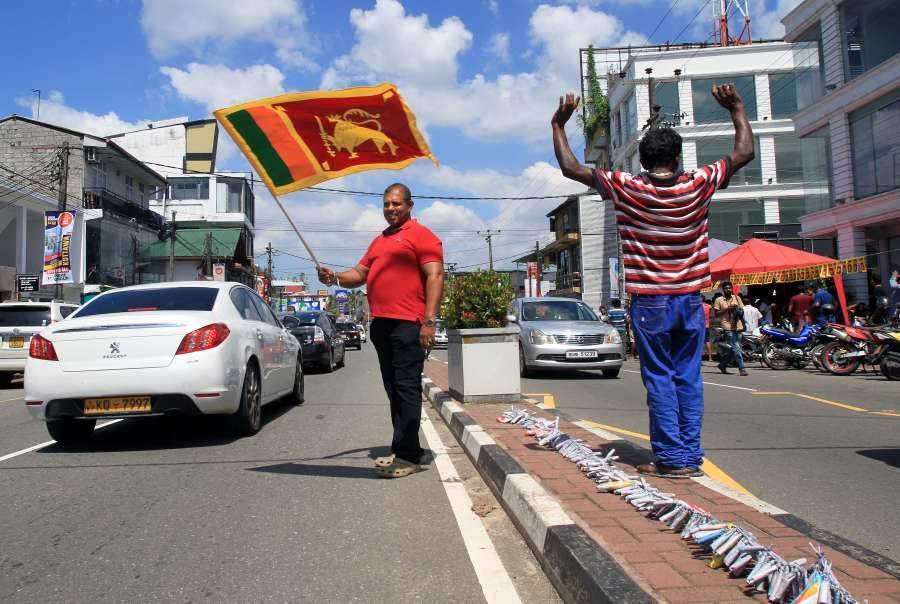
It is reported that huge money of the LTTE is left unused in some bank accounts in India including a nationalized bank in Fort branch, Mumbai. Is this true?
I have no idea. I wish it is true and I can have access to that money!
You are the PM of TGTE. There are reports that this is not a monolithic organization or rather a government like the Tibetan Government in Exile and that there are fissures. Please explain if there is any truth in this.
We do not claim that the TGTE is a government in exile. The TGTE is a transnational government, not a ‘transitional’ government. It is a new concept, it is based on democracy, transparency, and transnationalism. We held elections in 12 countries amidst the Tamil diaspora. It is based on the principle that the people are the nation even in the temporary absence of their own geographical territory. As one political science professor said that this is the Eelam Tamil movement’s contribution to political science.
Do you feel that the present Indian government will support your cause as the Chinese are inching towards establishing their proxy government in Sri Lanka?
It is important to advocate that the security of India is dependent on the rights and security of Eelam Tamils. If India fails to wake up to this reality, there will be another TIBET in the south for India and in the Indian Ocean region. Another important point is that Sri Lanka is no longer a democratic country and is currently under the control of a corrupt, authoritarian, militaristic reign of the Rajapakse family whose survival is ultimately determined by the Chinese support all the way from Colombo to the Security Council of United Nations. This is the crucial difference between India and China over their reach with the power in Colombo and the only critical element is Tamil Eelam that can keep the Sinhala ruling elites and the Chinese under check. This is what we want India to acknowledge and review its national and geostrategic priorities.
Rudrakumaran currently lives in New York and is a US citizen and has represented LTTE in several mediatory talks with the Sri Lankan Government.


